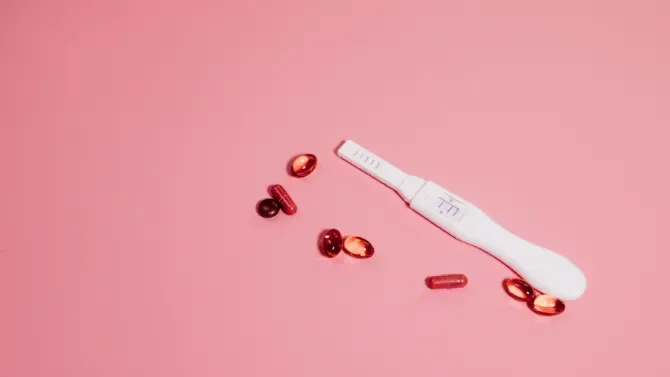Diet pills and pregnancy?
Taking Diet Pills While Pregnant. Pregnancy is a happy event for most
women, but there are negative effects, as with all things in life. The most
obvious negative effect of pregnancy is weight gain. On average, a pregnant
woman gains between 9 and 14 kilos during pregnancy. This is due to the
unborn child's weight, extra calories consumed while eating for two, and, of
course, the lack of mobility.It is not the weight accumulated during
pregnancy that usually worries women; it is rather trying to get rid of extra
pounds after birth!
Diet Pills While Pregnant

Can I take diet pills during pregnancy?
During pregnancy, it is vital not to take diet pills. Prescription diet pills or pills manufactured by pharmaceutical industries can be harmful to the unborn child. Even herbal supplements can have an adverse reaction on the fetus. Appetite suppressants are arguably the worst diet pills for a pregnant woman because they reduce food intake, which may benefit the mother in terms of weight loss, but not the baby. A lack of nutrients can very seriously affect the child's future health.Diet pills after pregnancy
Breastfeeding allows the transfer of nutrients from mother to child. All supplements, herbal or otherwise, should only be taken under strict doctor supervision.It is highly recommended to avoid all types of diet pills or diet patches while breastfeeding.
Celebrities are partly responsible for perceiving that weight loss can happen almost instantly after birth. If we want to tell the truth, many celebrities who claim to have lost their excess weight just weeks after birth have had surgery.
Professional dieticians agree that it takes nine months to lose the
pounds accumulated over the nine months of pregnancy; for those who choose the
healthy option.
So for absolute clarity: do not use diet pills while pregnant or breastfeeding!
 Of course, you can regain your pre-pregnancy weight by exercising and dieting.
But for those who want the fastest results, you can get HELP from a weight
loss pill.
Of course, you can regain your pre-pregnancy weight by exercising and dieting.
But for those who want the fastest results, you can get HELP from a weight
loss pill.
So for absolute clarity: do not use diet pills while pregnant or breastfeeding!
How to lose pregnancy weight?

Risk of diet pills during pregnancy
Along with weight gain during pregnancy, swelling in your hands and feet
enough to make it difficult to take your rings off and wear specific shoes
usually occurs. You might consider taking prescription Diet pills or buying
"natural" herbal diuretics at the health food store but don't, at least not
unless your doctor tells you to. Diuretics will not help reduce the normal
swelling or weight gain associated with pregnancy and may have harmful
effects. Do not take over-the-counter or prescription diuretics during
pregnancy without your doctor's approval.
Diet Pills Pregnancy

Causes
Every pregnant woman has increased blood volume between 40 and 60 percent
during pregnancy. You need extra fluid volume to supply the baby and
placenta with blood that contains nutrients, including oxygen. Water pills,
medically called diuretics, work by increasing the amount of sodium excreted
by the kidneys. Sodium draws more fluid from blood vessels and decreases the
amount of fluid in circulation.
Diet Pills During Pregnancy - Blood Pressure Effects
When your blood volume decreases, you have less blood to flow to the fetus
during pregnancy, which could deprive the fetus of necessary nutrients. When
blood volume decreases, the kidneys excrete extra renin, a substance that
constricts small blood vessels. This occurs in preeclampsia, one of the
hypertensive problems of pregnancy. As blood vessels constrict, blood
pressure rises, which occurs in preeclampsia and can also occur with the use
of diuretics or Diet pills, especially if you already tend preeclampsia. This could
trigger the onset of preeclampsia in susceptible women.
Complications during normal pregnancy
Problems associated with the use of diuretics during normal pregnancy
include an increased risk of nausea and vomiting no evidence of an increased
risk of congenital disabilities.
Newborns had no increased risk of low platelet count or jaundice.
Complications in women with other health problems
Diuretics can increase the fetal weight slightly, on average, by 3.6 oz.
However, 10.3% of women using diuretics or Diet pills in a Danish study published in the
"British Journal of Clinical Pharmacology" in February 2001 showed increased
fetal weight when women who took diuretics had diabetes, which increases
fetal weight. About 15 percent of the women had high blood pressure, which
more than doubled the risk of having an infant with a birth weight of fewer
than 5.5 pounds.
Complications of preeclampsia
Diet pills can lead to preeclampsia by increasing blood pressure in
susceptible women. Complications of preeclampsia include intrauterine growth
retardation, low birth weight, premature delivery, placental abruption,
maternal seizures, fetal or maternal brain damage, or fetal or maternal
death, in cases severe.
Read More:
Post a Comment